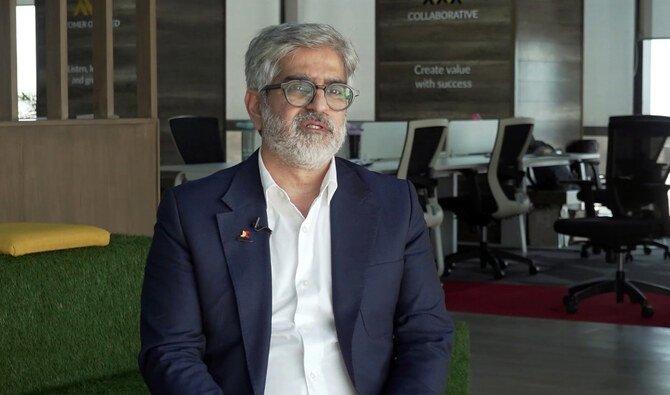ISLAMABAD: Prime Minister Shehbaz Sharif is undertaking a two-day visit to Uzbekistan on Feb. 25-26 as Pakistan eyes the role of a key regional transit hub, the foreign office said, adding the visit would also focus on bilateral cooperation in trade, energy and defense sectors.
Pakistan has been working to strengthen its position as a key trade and transit hub, connecting landlocked Central Asian states to the global market through its strategic location, and last year saw a surge in visits, investment discussions and economic activity between Pakistan and Central Asian nations.
Sharif’s visit to Uzbekistan follows his tour of Azerbaijan, during which both countries signed multiple agreements to enhance cooperation in the trade, energy, tourism and education sectors.
Sharif is visiting Uzbekistan at the invitation of Uzbek President Shavkat Mirziyoyev and both countries are expected to sign a number of bilateral agreements during the visit, according to Pakistan’s foreign office.
“Prime Minister of Pakistan and President of Uzbekistan, during the bilateral meeting, would discuss all areas of bilateral cooperation including connectivity, economic, trade, investment, energy, defense and security, regional stability, and education,” the Pakistani foreign office said.
“The leaders would also exchange views on regional and international issues of mutual interest.”
During the visit, Sharif would also address the Pakistan-Uzbekistan Business Forum.
“Leading businessmen from both sides will participate in the Business Forum and hold B2B (business-to-business) meetings to further enhance bilateral trade,” the foreign office said.
Uzbekistan is the largest consumer market and second biggest economy in Central Asia. It is the first Central Asian country with which Pakistan has signed a bilateral Transit Trade Agreement (UPTTA) and bilateral Preferential Trade Agreement (PTA) on 17 items, according to the Pakistani foreign office.
In February 2023, Pakistan and Uzbekistan signed a $1 billion deal to boost bilateral trade at a meeting in Tashkent, aiming to promote the exchange of goods and services. Last month, Uzbek Ambassador to Pakistan Alisher Tukhtaev also announced plans to launch direct flights from Uzbekistan to the southern Pakistani city of Karachi.
“The Prime Minister’s visit underscores Pakistan’s commitment to further strengthen its ties with Uzbekistan, through fostering greater economic collaboration and exploring new avenues of partnership, as part of the strategic vision for regional integration and economic prosperity,” the foreign office added.
PM Sharif to visit Uzbekistan today as Pakistan eyes regional trade and transit hub role
https://arab.news/zhwhe
PM Sharif to visit Uzbekistan today as Pakistan eyes regional trade and transit hub role

- Sharif’s visit will focus on strengthening connectivity, bilateral cooperation in trade, energy and defense sectors
- Pakistan aims to capitalize on its geostrategic location to connect landlocked Central Asia with rest of the world



















